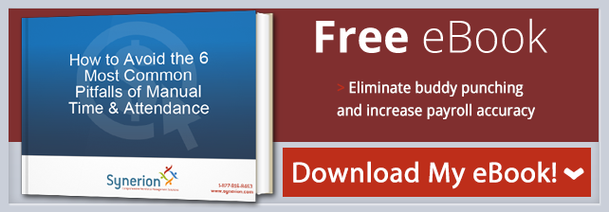 As of this year, millennials make up the largest percentage of the civilian labor force. Nearly 37 percent of all employees are those born between 1980 and 1995, and they bring a distinct viewpoint and unique set of skills to the labor market. To attract the best and the brightest of this ambitious generation, your workplace will need to appeal to their values. These three tips can help you adapt to the needs of the millennial workforce.
As of this year, millennials make up the largest percentage of the civilian labor force. Nearly 37 percent of all employees are those born between 1980 and 1995, and they bring a distinct viewpoint and unique set of skills to the labor market. To attract the best and the brightest of this ambitious generation, your workplace will need to appeal to their values. These three tips can help you adapt to the needs of the millennial workforce.
Strengthen Your Career Ladders
Millennials are often misjudged as being entitled and lacking loyalty. Their frequent job hopping and thirst for promotion make them easily unsatisfied in companies that require decades "on the job" to advance and no education. Millennials need to feel challenged and empowered by their job or they find another company that will offer those perks.
Companies that hope to keep their millennial workforce need to retire the antiquated notion of promoting those who have held a position the longest and create more paths for growth. Invest resources into ongoing training, professional development, and mentoring to help millennials gain job satisfaction. To keep millennials employed and satisfied, managers need to engage their employees with growth opportunities.
Focus on Flexibility and Balance
Baby boomers were a working generation. They placed value in loyalty and hard work. Millennials, raised by baby boomers, saw that work ethic and decided against it. They valued having their family at home and time to themselves. Millennials seek a work-life balance that creates unity within their life. They want a job that challenges them and a social life that completes them. Few are willing to sacrifice time with friends and family for an extra pay raise or overtime because they saw their parents do just that and their home lives suffer because of it.
Workplaces that recognize and respect millennials' quest for balance gain workers who are as happy at work as they are at home. Remote hours are one way to attract these workers and keep them fulfilled. Another option is offering flexible work hours based on job goals rather than set hours. For industries such as technology, this can lead to increased productivity and a more satisfied workforce. If set hours are required, offering vacation packages, sick time and dependent care hours can lure millennials in. Ultimately, a focus on flexibility and balance can produce a more attractive offer to millennials that keeps them satisfied.
Learn How to Communicate
Millennials are the first generation to be raised with computers, cell phones and social media. Their communication style is vastly different from baby boomers and many managers lose their workforce by keeping traditional communications and eschewing the preferred method of millennials. Learning to embrace new methods of communication is vital when adapting to the needs of your millennial workforce.
With millennial workers, coworkers and managers regularly swap numbers and text for everything from time off requests to job duty questions. Connecting on social media is another way that millennial workers communicate, such as on LinkedIn. Staying abreast of the most current ways to communicate and reaching out to staff through those means not only ensures all staff members get your messages but also opens communication lines between employees and managers.
Millennial workers provide some much needed revitalization to the workforce. They have fresh ideas and a thirst for knowledge. Engaging with these workers to keep them employed and happy simply requires an understanding of their wants and needs. Managers who focus on providing work flexibility, advancement and open communication stand to gain the most productivity out of their millennial staff.
